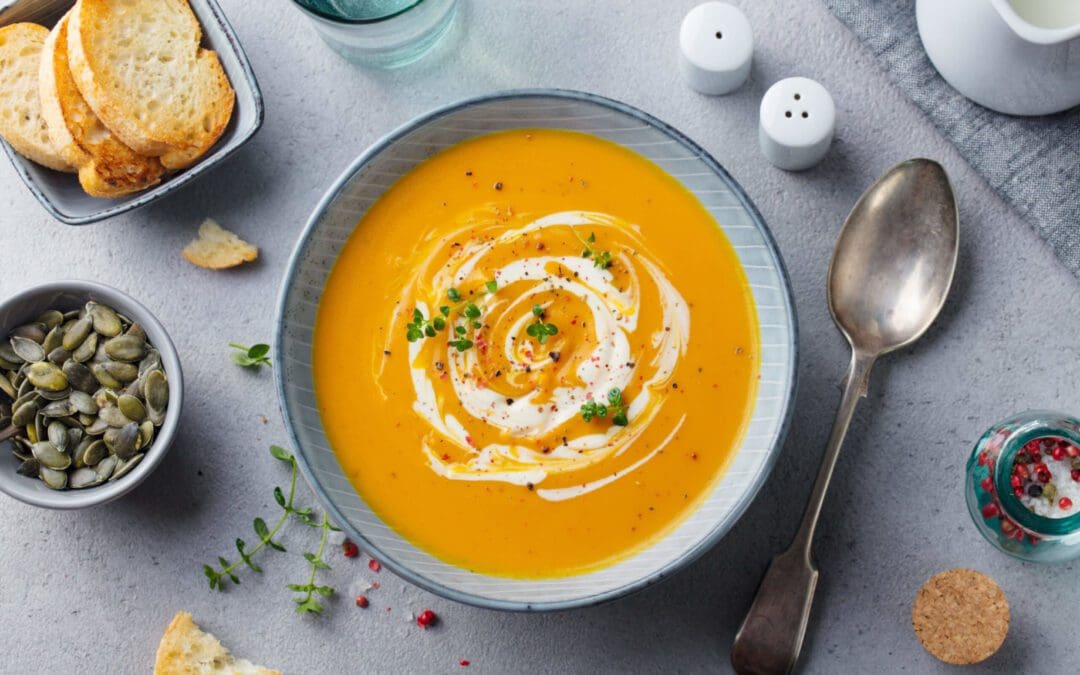As we age, keeping a healthy diet becomes even more important for our overall health and well-being.
We understand it can be a challenge to prepare nutritious and tasty meals every day. That’s why having a meal plan is so important. With a meal plan in place, you can prepare and look forward to your meals ahead of time, without the hassle of wondering what to eat for breakfast, lunch, and dinner.
In this article, we’ve put together a week-long meal plan for seniors that is both quick and easy to follow. It’s also filled with the foods you need to fuel your body and help you live your best (and healthiest) life.
Why Meal Plans for Seniors Are Important
As we get older, our bodies become less efficient at absorbing nutrients from the food we eat, which can lead to a range of health issues. This is why ensuring you’re getting enough of the right nutrients and vitamins you need through your diet is crucial.
Meal planning and nutrition play an important role in promoting optimal health, and eating well can significantly impact the quality of life for older adults.
It can reduce the risk of developing chronic, age-related diseases such as heart disease, diabetes, and osteoporosis, while also boosting your immunity and energy. A well-balanced diet can also play a vital role in managing symptoms and improving the outcomes of existing health conditions.
But, what is a well-balanced diet? It should include a variety of nutrient-dense foods from all food groups, including:
- Low-fat dairy – aim for at least three servings a day for calcium and vitamin D.
- Fruits and vegetables – packed with vitamins, minerals, and fibre, try to eat at least five portions a day.
- Lean protein – enjoy three servings a day, such as lean meat, poultry, beans, tofu, fish, eggs, and legumes.
- Whole grains – an excellent source of minerals, vitamins, and fibre, aim to eat at least three servings a day.
- Healthy fats – enjoy small amounts of healthy fats such as olive oil, nuts, and avocados.
It’s also important to limit your intake of foods high in saturated fats, sugar, and salt. Some of these include:
- High-fat dairy products
- Red and processed meats
- Salty snacks
- Ready-made meals
- Sugary treats
- Sugary drinks
We understand that reaching for a ready meal can be easy and convenient, but with a meal plan for seniors in place, you can plan and prepare healthy and delicious meals in advance.
Our Meal Plan for Seniors
Ready to start planning some delicious and nutritious meals? We’ve compiled a week-long meal plan for seniors, which is not only healthy and easy to prepare, but tasty too. We’ve listed suggestions for breakfast, lunch, and dinner.
If there is a type of food listed that you don’t like or can’t eat, you can always modify the meals and swap things out. The goal is to find a balance that works for you while incorporating a large variety of nutrient-rich foods to support your health.
Don’t forget that staying hydrated is a crucial factor in maintaining good health and wellness. Try to drink six to eight glasses of water or other fluids (not alcohol) a day to keep your hydration on track.
Day 1
- Breakfast: Porridge with skimmed milk, topped with some fresh or frozen berries, and a sprinkle of seeds or nuts.
- Lunch: Mixed bean salad made with various beans and legumes. Add a sliced hard-boiled egg and some olive oil and balsamic vinegar as a dressing.
- Dinner: Baked salmon with a variety of roasted vegetables and a small jacket potato.
- Daily snacks: Fresh fruit salad, whole grain crackers with hummus.
Day 2
- Breakfast: Scrambled eggs with smoked salmon, served with a slice of whole grain toast.
- Lunch: Chicken Caesar salad with whole grain croutons and a light Caesar dressing.
- Dinner: Roast turkey breast with sweet potato mash and steamed broccoli.
- Daily snacks: Sliced apple with peanut or almond butter, Greek yoghurt with berries.
Day 3
- Breakfast: Spinach and mushroom omelette with a banana.
- Lunch: Grilled chicken and salad sandwich on whole grain bread.
- Dinner: Spaghetti Bolognese made with low-fat beef and brown pasta with a side salad.
- Daily snacks: Carrots and celery with guacamole, mixed fruit bowl with berries, and a drizzle of honey.
Day 4
- Breakfast: Smoothie made with banana, spinach, skimmed milk, and a drizzle of honey or peanut butter.
- Lunch: Egg salad sandwich on whole grain bread with a side of carrot sticks.
- Dinner: Grilled mackerel with a side of roasted Mediterranean vegetables.
- Daily snacks: Mixed seeds with raisins, yogurt with berries.
Day 5
- Breakfast: Whole grain cereal with skimmed milk and a side of fruit salad.
- Lunch: Lentil soup served with a slice of whole grain bread.
- Dinner: Grilled steak with steamed vegetables and quinoa.
- Daily snacks: A small portion of cheese with whole grain crackers, and hard-boiled eggs.
Day 6
- Breakfast: Porridge with sliced banana and a sprinkle of cinnamon.
- Lunch: Tuna salad with mixed greens, cherry tomatoes, and a balsamic vinaigrette.
- Dinner: Turkey meatballs in a tomato sauce with whole wheat pasta with a side salad.
- Daily snacks: Low-fat cottage cheese with mixed berries, breadsticks, and a small portion of olives.
Day 7
- Breakfast: Low-fat Greek yogurt, blueberries, and chopped walnuts.
- Lunch: Whole grain wrap with grilled chicken, mixed vegetables, and hummus.
- Dinner: Tuna steak with rice served with tenderstem broccoli.
- Daily snacks: Mixed nuts and dried fruit, a small portion of popcorn.
Food plays a big role in our everyday lives. As well as giving you the fuel you need to keep your body and mind healthy, eating can also be a fun and social event.
